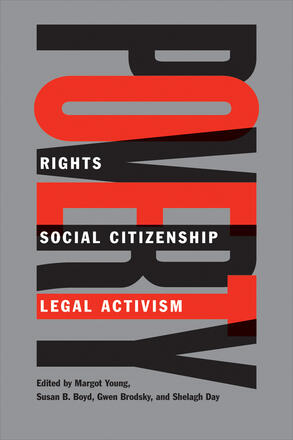
Poverty
Rights, Social Citizenship, and Legal Activism
La description
Recent years have seen the retrenchment of Canadian social programs and the restructuring of the welfare state along neo-liberal lines. Social programs have been cut back, eliminated, or recast in exclusionary and punitive forms. Poverty: Rights, Social Citizenship, and Legal Activism responds to these changes by examining the ideas and practices of human rights, citizenship, legislation, and institution-building that are crucial to addressing poverty in this country. It challenges prevailing assumptions about the role of governments and the methods of accountability in the field of social and economic justice.
Reviews
In this volume, editors Margot Young, Susan B. Boyd, Gwen Brodsky, and Shelagh Day bring together a collection of essays intended to stimulate continued social, political, and legal anti-poverty activism or social justice. […] In total, this volume is an indispensable resource for scholars endeavoring to widen their understanding of social citizenship, poverty, and rights in ways that intertwine social policy and law. As well, some or all of the chapters will make valuable additions to graduate course syllabi n poverty, social movements, social policy, and he welfare state.
- Amber Gazso, York University
Dry legal scholarship is rarely as infused with compassion as it is in this book. The 18 individually authored chapters are written by legal scholars and practitioners, social activists and professionals who are waging an ongoing struggle against Canadian poverty. …the chapters are thoughtful, insightful, and often compelling as well as Canadian-centric.
- A. F. Johnson, Bishop's University
This collection transitions effortlessly between legal analysis, political commentary, and human rights advocacy. Featuring twenty different authors representing a range of interests and expertise, this collection provides a wide breadth of review on this topic . .. This collaboration presents an important discussion on the range of barriers to equality which are found in Canadian society, particularly the Canadian judicial system.
- Alison Forbes